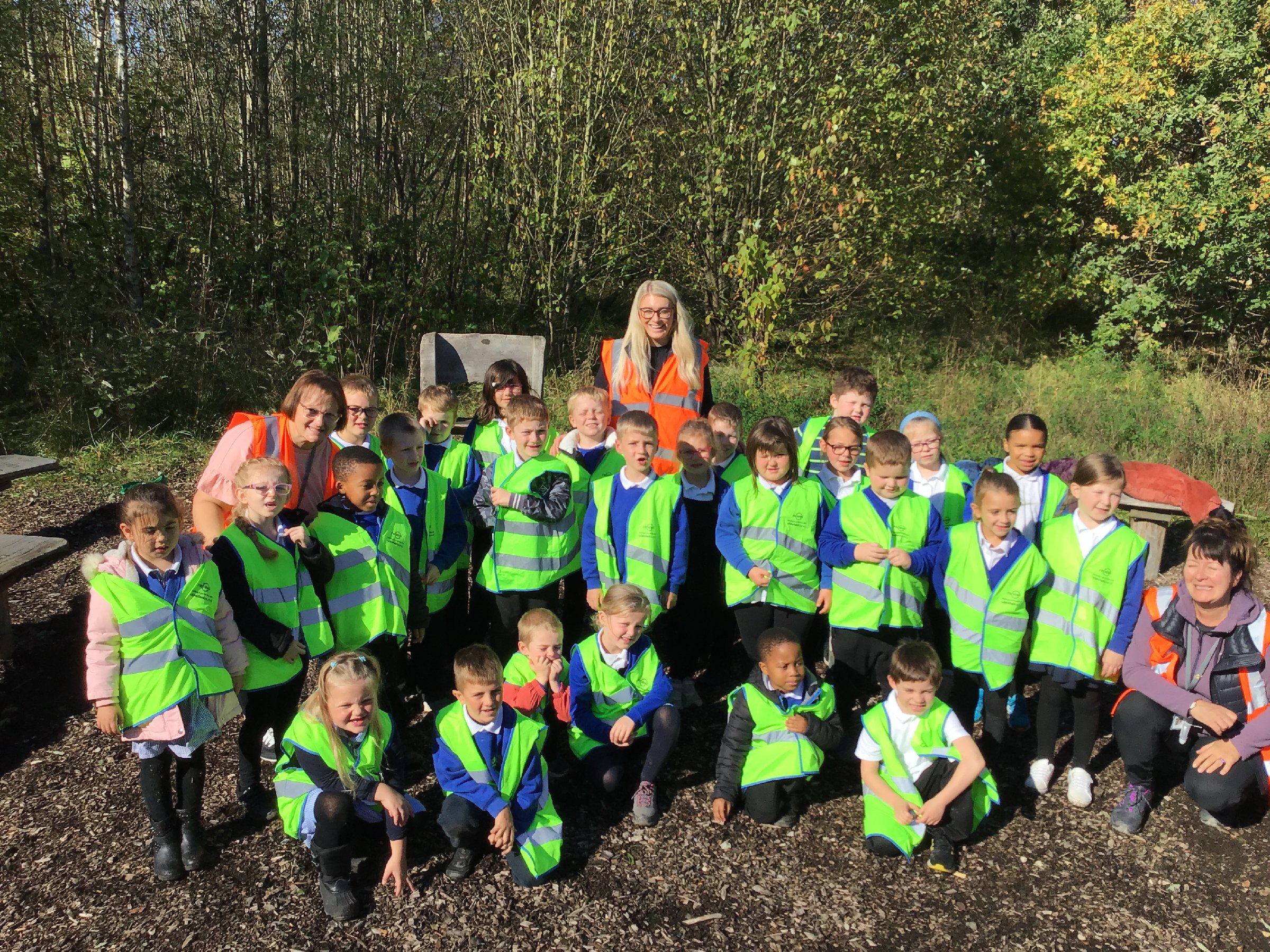Geography
Subject Leader: Mrs Clarke
Geography at Airedale Infant School allows our children to develop their use of geographical knowledge and understanding, in order to enhance their locational and place knowledge. In our diverse society, children need, more than ever before, to understand their place in the world and how their actions impact the environment.
The Primary Objectives of teaching Geography at Airedale Infant School are:
- To enable children to understand their local area and compare their life in this area with that in other regions in the United Kingdom and in the rest of the world
- To know how to draw and interpret maps
- To develop in children the skills of research, investigation and problem-solving
- To develop and apply knowledge and understanding of human geography, in order for children gain an appreciation of life in other cultures
- To motivate children to find out about physical geography, recognising the importance of sustainable development for the future of mankind
The Airedale Geography Curriculum
Our curriculum is skills and knowledge based, including full coverage of the National Curriculum which meets the needs of all Airedale Infants and Junior pupils. This takes into consideration the school setting, local, national and international developments.
Our pupils are offered a very wide range of experiences within the curriculum to extend their understanding of themselves and the world in which they live. The children develop skills, attitudes, and values to enable them to become lifelong learners and equip them for the future. The ability to learn is underpinned by the teaching of basic skills, concepts, and values. There should be no limits to curiosity, and we instil a thirst for new experiences and knowledge.
We actively promote British Values and Social, Moral, Spiritual and Cultural differences. We also provide opportunities for our pupils to learn about the contribution of Britons to innovation, excellence and changes in the world.
The Curriculum has been organised into topics which are a vehicle to promote our school values and curriculum drivers, and allow for the development of skills and understanding within and across the subjects. Our curriculum topics allow the teaching of threshold concepts that are the fundamental ‘learning elements’. These concepts are built upon and developed within the year, across the year and over the course of the school experience.
Adaptive teaching (aka agile teaching) recognises: individual needs; the need for varied and additional resources; when, where and how additional support can be facilitated; and how children learn best. Teachers must plan lessons so that all pupils can study every national curriculum subject and experience success against age-appropriate expectations and/or their own bespoke personal targets.

Geography permeates throughout our curriculum and links closely to our school drivers Our Trust values of Ambition, Bravery and Respect underpin our school ethos. Geography opens up the children’s mind to a range of possibilities, showing children how they can take risks, investigate and explore the world around them whilst aspiring to be their very best. Through studying specifically chosen significant people in geography, we provide our children with the understanding of being ambitious and where this can lead to. Much of geography is linked to practical activities, where we encourage our children to be brave, making independent choices linked to geographical fieldwork and enquiry.
Oracy and communication are fundamental skills that we believe equip our children to be life-long learners. This is promoted in geography through the use of a variety of technical vocabulary, investigation and use of carefully planned speaking and listening activities in order to develop geographical enquiry and promote inquisitive conversations. The vocabulary in geography is very much dependent on prior knowledge of geographical concepts so we have specifically chosen progressive vocabulary which we expect children to know, understand and apply in context.
Being independent and fostering a love for learning is crucial in our school. This is promoted in geography regularly through the use of enquiry-based lesson where we encourage children to have enquiring minds.
When children are in geography lessons, they are explicitly told that they are going to be ‘geographers’. They are then reminded of the key skills that they will learn, use and develop within this subject, specifically linking to their prior learning. The knowledge content is carefully selected and skilfully taught alongside the key skills and scientific concepts, which are threaded throughout the geography curriculum. This allows children ample opportunities to revisit, reinforce and embed learning.
In Year 2, within each unit of study we pose investigative ‘BIG questions’ in order to engage and motivate them as learners. This enables the children to further develop and deepen their knowledge and understanding whilst driving their own learning forward by questioning, investigating and solving problems.
How do we ensure progression of knowledge and skills?
At Airedale Infant School, we have in place, for each subject area, a knowledge and skills progression document, which is used for planning, to ensure sequenced and appropriate content for specific year groups. Teachers are clear on the learning and expectations for each year group, as this has been carefully selected and mapped out so that children are building on prior knowledge and skills each term and each year.
Our children start by learning about their own immediate locality, allowing them to start to learn and use the language associated with geography, as they begin to develop basic fieldwork skills. Children then learn to compare their own locality to places in the wider world. Whenever possible, we teach through a themed approach, to enable our children to embed and revisit learning, make connections and develop a greater depth of understanding within the subject. The content is chosen in order to make effective links with key cross-curricular themes, reflect expectations in the National Curriculum programmes of study and engage and inspire children’s curiosity and interest in geography.
Ultimately, our curriculum is designed to ensure that pupils know more and remember more, through the use of progressive skills. Within these documents there are opportunities for differentiation, in order to meet the needs of all learners.
How is the subject taught?
When children are in geography lessons, they are explicitly told that they are going to be ‘geographers.’ They are then reminded of the key skills that they will learn, use and develop within this subject, specifically linking to their prior learning.
The knowledge content is carefully selected and skilfully taught alongside the key skills and geographical concepts, which are threaded throughout the geography curriculum. This allows children ample opportunities to revisit, reinforce and embed learning.
Within each unit of study, we pose investigative ‘BIG questions’ in order to engage and motivate them as learners. This enables the children to further develop and deepen their knowledge and understanding whilst driving their own learning forward by questioning, investigating and solving problems.
Within each Geography lesson, children are introduced to and reminded of key vocabulary, in order to promote oracy and language acquisition. Specific questioning is used to check children’s understanding and prior knowledge, before new concepts, skills or knowledge are introduced. Modelling is used by class teachers to clarify expectations, children are then given plentiful opportunities to consolidate, build upon and apply basic skills and knowledge, across a series of lessons, as well as across the year. Class teachers use a range of digital and concrete resources, such as atlases and Digi-maps in order for children to develop and understand place knowledge and mapping skills.
In accordance with the National Curriculum Key Stage 1 children will be taught to:
Locational knowledge
- name and locate the world’s seven continents and five oceans
- name, locate and identify characteristics of the four countries and capital cities of the United Kingdom and its surrounding seas
Place knowledge
- understand geographical similarities and differences through studying the human and physical geography of a small area of the United Kingdom, and of a small area in a contrasting non-European country
Human and physical geography
- identify seasonal and daily weather patterns in the United Kingdom and the location of hot and cold areas of the world in relation to the Equator and the North and South Poles
use basic geographical vocabulary to refer to:
- key physical features, including: beach, cliff, coast, forest, hill, mountain, sea, ocean, river, soil, valley, vegetation, season and weather
- key human features, including: city, town, village, factory, farm, house, office, port, harbour and shop
Geographical skills and fieldwork
- use world maps, atlases and globes to identify the United Kingdom and its countries, as well as the countries, continents and oceans studied at this key stage
- use simple compass directions (North, South, East and West) and locational and directional language, to describe the location of features and routes on a map
How do we know that our children are making progress?
Ongoing assessments of the children’s knowledge and skills are made by the class teacher. Misconceptions are addressed and next steps carefully planned. Children’s outcomes are compared to the subject specific skills and knowledge documents.
At the end of a block of teaching, our children seek to find the answers to a range of questions designed to engage and motivate them as learners. This enables the children to further develop and deepen their knowledge and understanding.
Subject leaders gather an overview of children’s outcomes in each subject area. This is used to plan appropriate next steps for their future learning, as well as provide an overview of learning within a subject area cross the whole school.
What wider opportunities are provided for our children?
Children have the opportunity to participate in regular visits out to places linking to the geography curriculum such as locality walks in Year 1. This is so that they can experience first-hand what the environments are like and gain a greater understanding of the human and physical features these places have. Fieldwork is carefully planned so it takes place both locally and further afield wherever possible within each unit of study.
Further Information & Links




